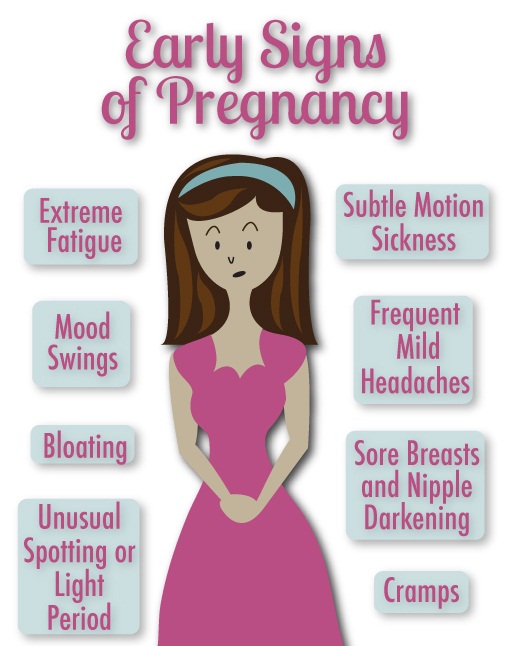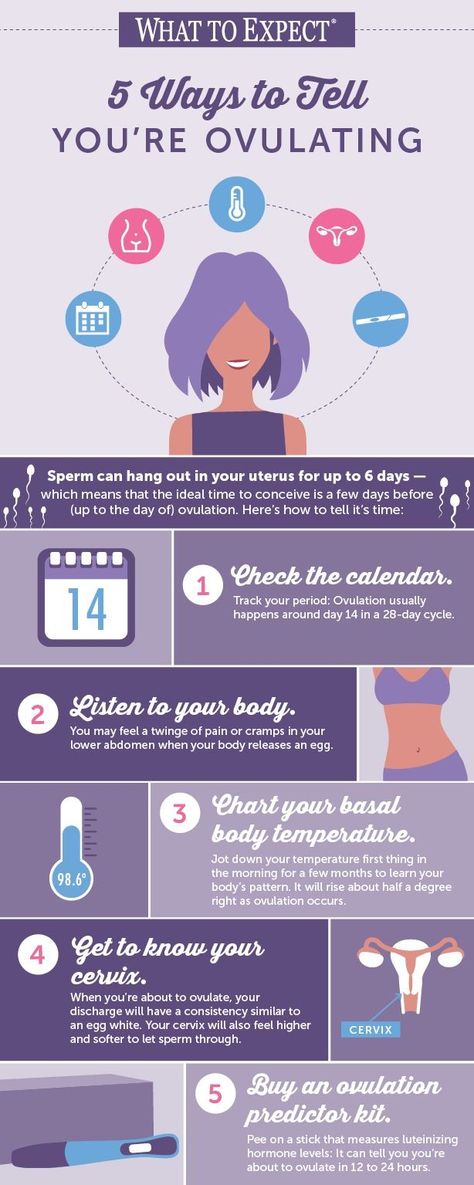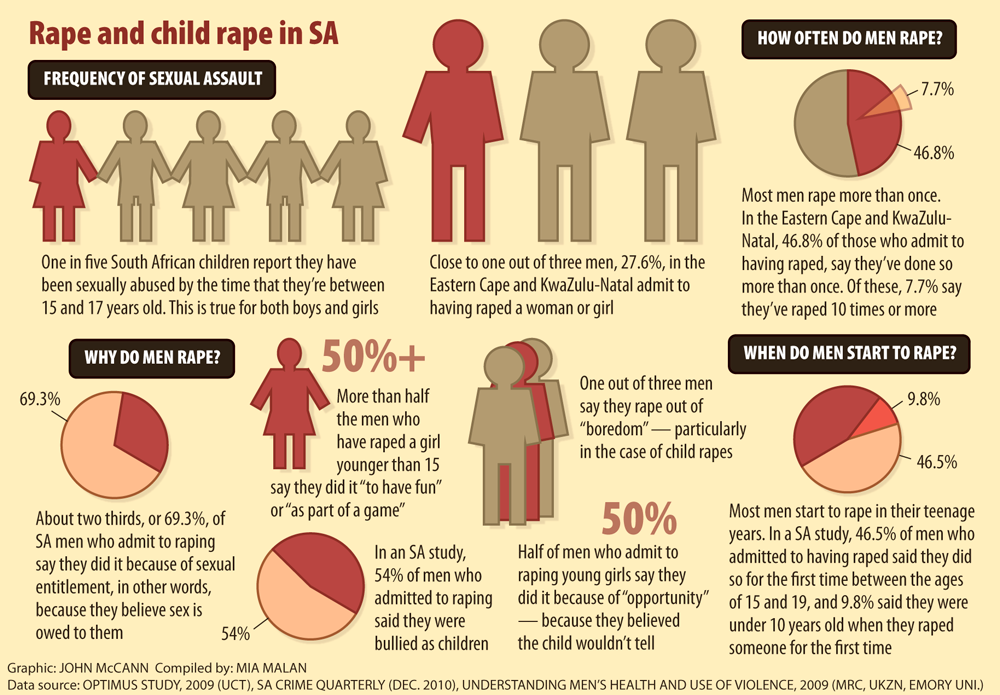Pregnancy early symptoms bleeding
Signs and symptoms of pregnancy
Early signs of pregnancy
If you have a regular monthly menstrual cycle, the earliest and most reliable sign of pregnancy is a missed period.
In the first few weeks of pregnancy you may have a bleed similar to a very light period, with some spotting or only losing a little blood. This is called implantation bleeding.
Every pregnancy is different and not everyone will notice all of these symptoms.
Feeling sick during pregnancy
You may feel sick or be sick. This is commonly known as morning sickness, but it can happen at any time of the day or night.
Morning sickness symptoms usually start when you’re around 4-6 weeks pregnant
If you're being sick all the time and cannot keep anything down, see a GP.
You may have hyperemesis gravidarum, a serious condition in pregnancy that causes severe vomiting and needs treatment.
Feeling tired is common in pregnancy
It's common to feel tired, or even exhausted, during pregnancy, especially during the first 12 weeks or so.
Hormonal changes in your body at this time can make you feel tired, sick, emotional and upset.
Sore breasts in early pregnancy
Your breasts may become larger and feel tender, just as they might do before your period. They may also tingle.
The veins may be more visible, and the nipples may darken and stand out.
Peeing more often suggests pregnancy
You may feel the need to pee more often than usual, including during the night.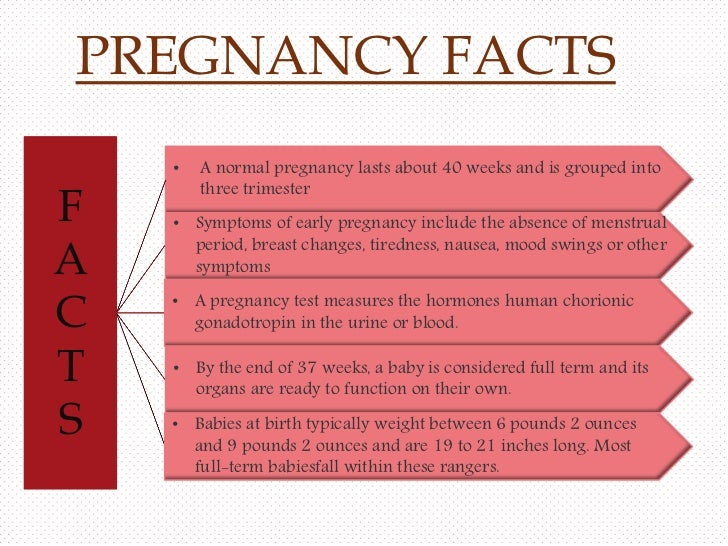
Other signs of pregnancy you may notice are:
- constipation
- more vaginal discharge (without any soreness or irritation)
Strange tastes, smells and cravings
During early pregnancy, you may find you no longer like some foods or drinks you used to enjoy.
You might notice:
- a strange taste in your mouth, which some describe as metallic
- you crave new foods
- you lose interest in certain foods or drinks you used to enjoy, such as tea, coffee or fatty food
- you lose interest in smoking
- you have a more sensitive sense of smell than usual – for example, the smell of food or cooking
If you're worried about any symptoms you're having, talk to a GP or your midwife.
If your pregnancy test is negative
A positive test result is almost certainly correct, as long as you have followed the instructions correctly.
A negative result is less reliable. If you get a negative result and still think you may be pregnant, wait a week and try again.
If you're pregnant, use the pregnancy due date calculator to work out when your baby's due.
Find maternity services near you
Get Start4Life pregnancy emails
Sign up for Start4Life's weekly emails for expert advice, videos and tips on pregnancy, birth and beyond.
Video: what pregnancy symptoms are normal?
In this video, a midwife describes which symptoms during pregnancy are normal.
Media last reviewed: 20 March 2020
Media review due: 20 March 2023
Page last reviewed: 8 October 2019
Next review due: 8 October 2022
Vaginal Bleeding During Early Pregnancy and Spotting During Pregnancy
Top things to know about bleeding during pregnancySpotting is any bleeding from the vagina, outside your menstrual period
Spotting is a common symptom of early pregnancy
Bleeding during pregnancy is usually nothing to worry about
If you’re pregnant and experience heavy bleeding, call your healthcare provider
What is spotting?
Spotting is any bleeding from the vagina outside your menstrual period.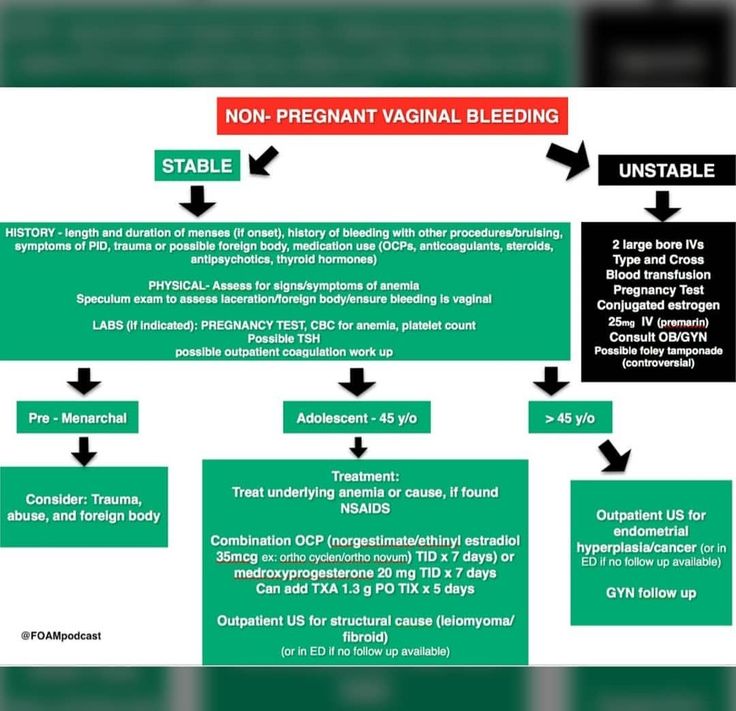 Light bleeding at the beginning or end of your period is not spotting. In this article we use bleeding and spotting interchangeably.
Light bleeding at the beginning or end of your period is not spotting. In this article we use bleeding and spotting interchangeably.
Download Clue and track bleeding episodes and spotting.
App StorePlay Store
Bleeding during early pregnancy is common
Vaginal bleeding is a common symptom of early pregnancy. About 1 in 4 people experience spotting during early pregnancy, usually in gestational weeks 5 and 8 — this is about 1 to 4 weeks after someone expects their period (1). This bleeding can sometimes be confused with a light period (2).
Pregnancy, Birth & Postpartum
Early signs and symptoms of pregnancy
Most people notice the symptoms of pregnancy start about two weeks after...
by Clár McWeeney
Is bleeding during pregnancy a symptom of miscarriage?
Light bleeding is usually nothing to worry about—research has shown that people with spotting are not more likely to have a miscarriage than people who don’t have spotting (1). However, heavy bleeding may be more of a concern. If you’re pregnant and bleeding, call your healthcare provider to check in, just so they know what’s going on.
However, heavy bleeding may be more of a concern. If you’re pregnant and bleeding, call your healthcare provider to check in, just so they know what’s going on.
Is spotting during early pregnancy the same as implantation bleeding?
While many sources call spotting in early pregnancy “implantation bleeding,” there is not strong evidence that this bleeding is associated with an embryo’s implantation in the uterus.
Bleeding in early pregnancy may actually be related to hormonal changes, as the production of progesterone switches from the ovary to the forming placenta (1).
Bleeding
What is spotting and why does it happen?
How, when, and why does spotting happen? Is it different than light...
by Sarah Toler, DNP, CNM
Is spotting a symptom of ectopic pregnancy?
Spotting can be a symptom of an ectopic pregnancy (3). This is a pregnancy that is growing somewhere other than the uterus, usually the fallopian tube. Ectopic pregnancy bleeding may be coupled with other symptoms including abdominal pain on one side, shoulder pain, and/or dizziness.
Ectopic pregnancy bleeding may be coupled with other symptoms including abdominal pain on one side, shoulder pain, and/or dizziness.
If you experience symptoms of spotting and suspect you may have an ectopic pregnancy, seek immediate medical help.
Pathological and physiological causes of bleeding during early pregnancy
The gestation period is a complex process that does not always go well. Every second woman has various complications. Most often, women go to the doctor with complaints of spotting. Why does bleeding occur during early pregnancy, how dangerous is it?
Causes of bleeding in pregnancy
Blood in the first trimester of pregnancy in the vaginal secretion is observed in 30% of expectant mothers. Bleeding can be weak, spotting, plentiful. nine0003
Most often, blood during early pregnancy is observed during implantation of the fetal egg. When the egg is attached, the vessels are often damaged, which leads to the appearance of blood secretions.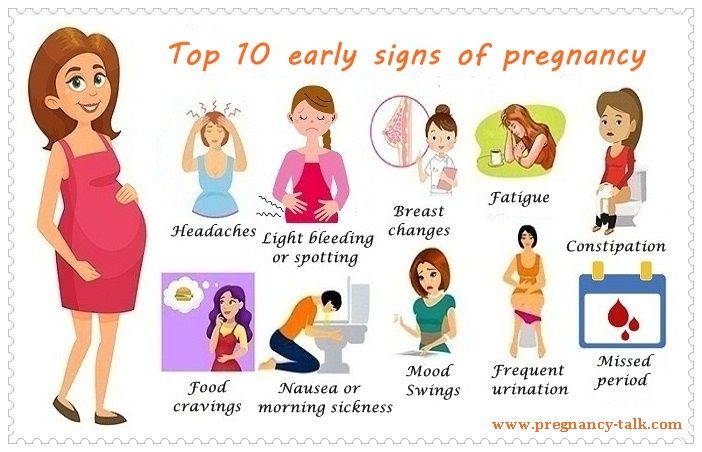 They are similar to menstruation, last 1-2 days. This process is considered natural, does not indicate any pathologies.
They are similar to menstruation, last 1-2 days. This process is considered natural, does not indicate any pathologies.
Any bloody discharge during early pregnancy is a reason for an urgent appeal to a gynecologist. Even if there is no additional discomfort. At a remote consultation, our doctor will collect an anamnesis, draw up a clinical picture in order to identify the cause of bleeding. And he will select effective methods to eliminate the problem. nine0003
Blood during pregnancy - other common causes
In addition to the main ones, there are some other reasons why pathology can develop.
| No. | Cause |
| one nine0003 | Excessive exercise, deep penetration during intercourse. If the cervix is damaged, slight red discharge occurs, which disappears within two hours. |
| 2 | Progesterone deficiency. With a low level of the hormone, the body starts the process of menstruation. Bloody discharge during pregnancy appears when the uterine mucosa is exfoliated. The situation may adversely affect the implantation of the fetal egg. nine0003 |
| 3 | Miscarriage - occurs in 2-8% of pregnant women. It is characterized by pain in the lower abdomen, which is rapidly increasing, bloody discharge at the beginning of pregnancy. The causes of the pathological condition can be different - infectious diseases, fetal malformations that are incompatible with life, dehydration, abdominal trauma, taking certain drugs. nine0026 |
| 4 | Ectopic pregnancy. Dangerous condition, urgent hospitalization is required. |
| five | A failed miscarriage. Blood discharge during pregnancy, abdominal pain are the main manifestations of intrauterine development of the fetus. |
| 6 | Infections. To avoid dangerous complications, it is necessary to treat diseases. Parents of both sexes should be tested. |
| 7 | Full or partial hydatidiform mole. Pathology of the chorion, in which the size of the villi increases, bubble expansions form. The risk group includes women with ovarian dysfunction, inflammatory diseases of the reproductive system, and a history of cystic mole. Bleeding is profuse and constant, characteristic blisters are present. The symptoms of early toxicosis are very pronounced, the size of the uterus, the hCG indicators do not correspond to the gestational age. nine0003 |
| eight | Cervical cancer. Pregnant women are rarely diagnosed. The risk group includes women with a large number of abortions and childbirth, often changing sexual partners. |
| nine | Subchorionic hematoma. |
| 10 | Cervical erosion. Detected in 50% of women. For pregnant women, the disease is not dangerous, but constant medical supervision is needed. |
Bleeding in the first trimester can be caused by causes that appear at any gestational age. These are fibroids, polyps in the uterus and cervical canal, cardiovascular pathologies that are associated with a weakening of the endothelium. nine0003
Physiological or pathological bleeding during gestation - differences
Clinical manifestations of bleeding in pregnant women depend on the causes. Physiological discharge of blood from the genital tract in the early stages of gestation proceeds without deterioration in well-being. With bleeding caused by erosion, fibroids and polyps, there are also no additional discomfort.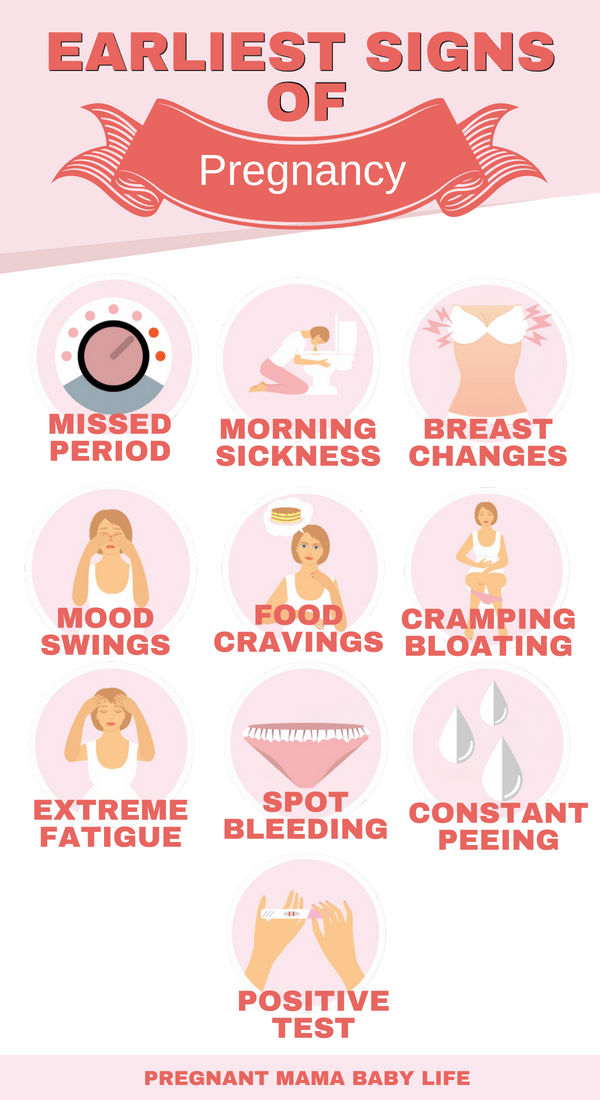 In this case, only a few drops of blood are released, it bleeds for a short time. nine0003
In this case, only a few drops of blood are released, it bleeds for a short time. nine0003
Abundant bleeding, similar to menstruation, against the background of a general satisfactory condition, occurs with a deficiency of progesterone.
Bleeding with spontaneous interruption is accompanied by constant or periodic pain in the lumbar region, abdomen. Disturbed by nausea, bouts of dizziness, slightly increased body temperature. Bleeding can be weak or intense, and clots are often observed in the discharge.
nine0002 When a fertilized egg is fixed outside the uterus, internal bleeding often occurs, and discharge from the genital tract may appear much later. Characteristic manifestations - acute pain in the abdomen radiates to the anal region, right or left side, blood pressure decreases, cold sweat appears, fainting is possible. Significant blood loss leads to the development of a state of shock with a high probability of death.Learn more about implantation bleeding
Why does it bleed at the initial stages of gestation? Most often, the appearance of spotting during pregnancy is associated with the implantation of the embryo.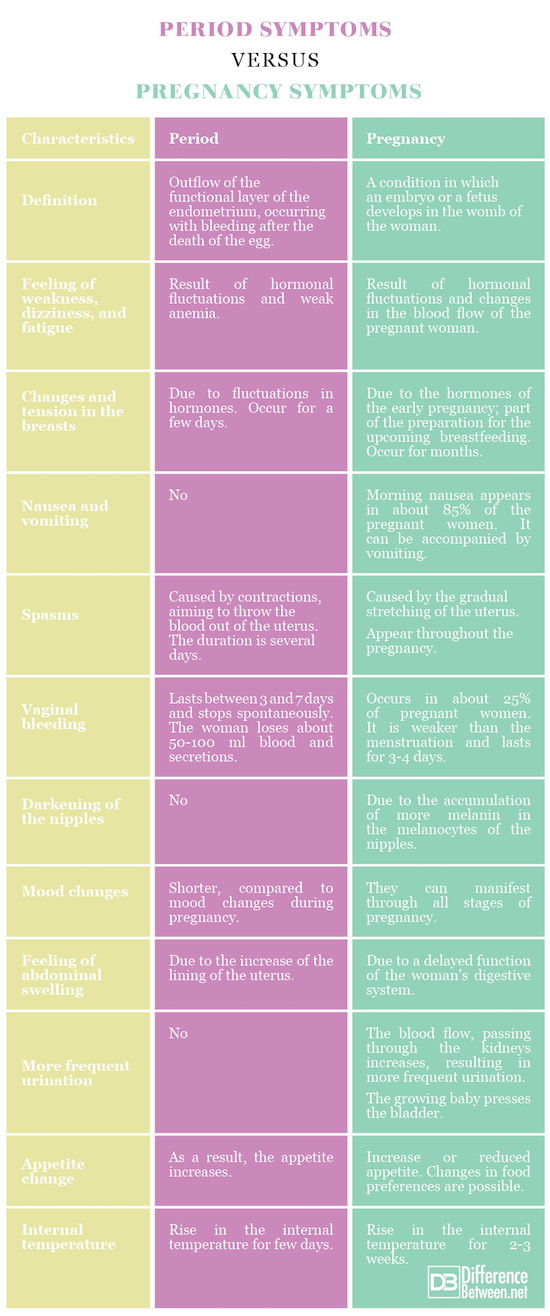 They occur 6-12 days after conception and are often one of the first signs of conception.
They occur 6-12 days after conception and are often one of the first signs of conception.
Usually, the appearance of spotting at the beginning of pregnancy coincides with the time of the onset of menstruation, if the cycle is regular. But discharge in pregnant women is not as abundant as menstrual bleeding. Duration - from several hours to three, with the first pregnancy up to 5 days. nine0003
How does implantation bleeding manifest?
- weak, pulling pain in the lower abdomen;
- headache, dizziness;
- sudden change of mood;
- bouts of nausea;
- increased sensitivity, swelling of the mammary glands;
- fatigue, drowsiness.
Important! When the embryo is implanted, little blood is released, usually these are small spots. The discharge may be pink, brown, orange, and there should be no clots. nine0003
Possible causes of early bleeding by week
The first months of pregnancy are the most difficult and dangerous.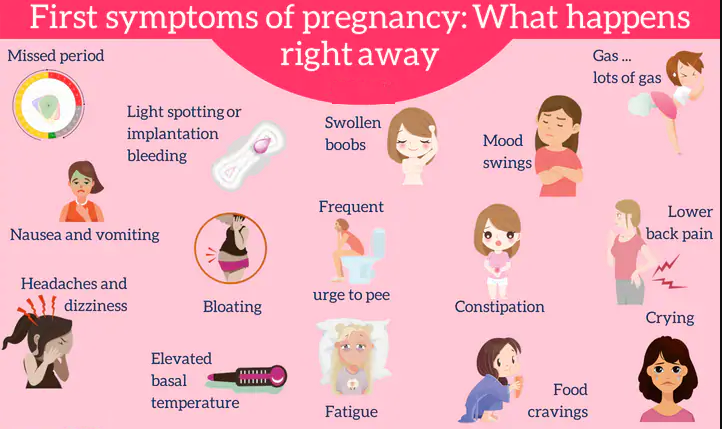 It is in the early stages that various pathologies and complications often appear.
It is in the early stages that various pathologies and complications often appear.
Why blood may appear in the early stages during pregnancy:
- At the 4th week of pregnancy, discharge with an admixture of blood may appear - this is implantation bleeding. Heavy bleeding is a dangerous sign, most often indicates a miscarriage. Spontaneous abortion can be caused by exercise, fever, infections, drugs or alcohol. Such bleeding is profuse, painful, blood clots are present. nine0156
- The appearance of sanious discharge at the 5th week of pregnancy may be a sign of a missed pregnancy. The reasons are overwork, Rh conflict, bad habits, bacterial and viral diseases of the reproductive system, genetic disorders in the embryo. Symptoms - causeless fever, severe pain in the lower back and lower abdomen, the disappearance of signs of toxicosis.
- Blood in the discharge at the 6th week of pregnancy appears with an ectopic attachment of the fetal egg, fetal fading, Rhesus conflict.
 Discharge with blood at 6 weeks of pregnancy is a reason for an urgent visit to the gynecologist. nine0156
Discharge with blood at 6 weeks of pregnancy is a reason for an urgent visit to the gynecologist. nine0156 - At the 7th week of pregnancy, discharge with blood is not the norm. May indicate a miscarriage, missed or ectopic pregnancy.
- From the 8th week of pregnancy, one of the most dangerous periods of pregnancy begins. The formation of the placenta begins, the hormonal background changes. Bloody discharge appears with the threat of miscarriage or spontaneous abortion. Pregnancy is often not saved.
Pay attention! nine0170 In the second trimester, bleeding occurs only in 5-10% of women. Most often this is due to late spontaneous abortion, isthmic-cervical insufficiency. The appearance of blood in the third trimester mainly occurs with presentation, placental abruption.
Early bleeding after IVF
The appearance of blood discharge during pregnancy on the 8-10th day after IVF is not considered a pathology, provided that the woman feels normal.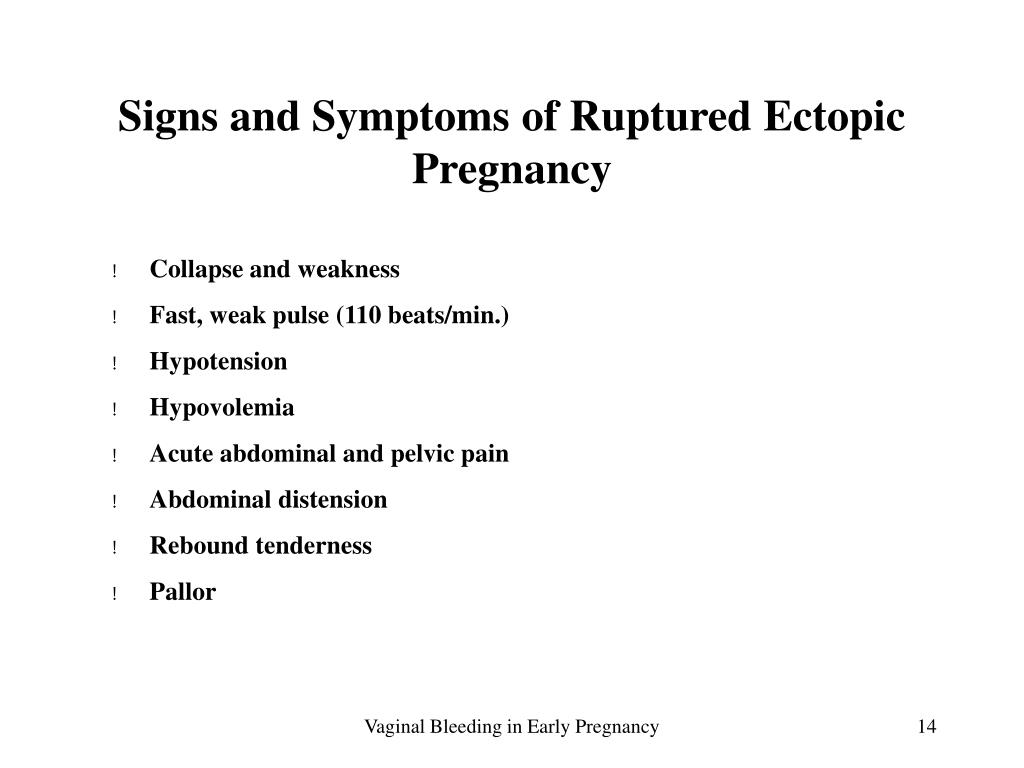 After the introduction of the embryo into the uterine cavity, minor damage to the small uterine vessels often occurs. Brown, dark cream, pale pink, odorless discharge most often indicates a successful transplant, pregnancy. nine0003
After the introduction of the embryo into the uterine cavity, minor damage to the small uterine vessels often occurs. Brown, dark cream, pale pink, odorless discharge most often indicates a successful transplant, pregnancy. nine0003
If spotting after IVF is observed for 1-2 days, slight pulling pains in the lower abdomen are disturbing, this may be due to a progesterone deficiency. After the examination, the doctor will adjust the hormonal maintenance therapy.
Pink discharge on the 16th day after the transfer is a dangerous symptom. It may be a sign of detachment of the fetal egg, the threat of termination of pregnancy.
According to studies, uterine bleeding in the first trimester is a common occurrence in pregnancy after IVF. Discharge does not affect the incidence of adverse reproductive outcomes. The number of embryo rejections in women with and without uterine bleeding is approximately the same. Consult with our doctors by phone for more details.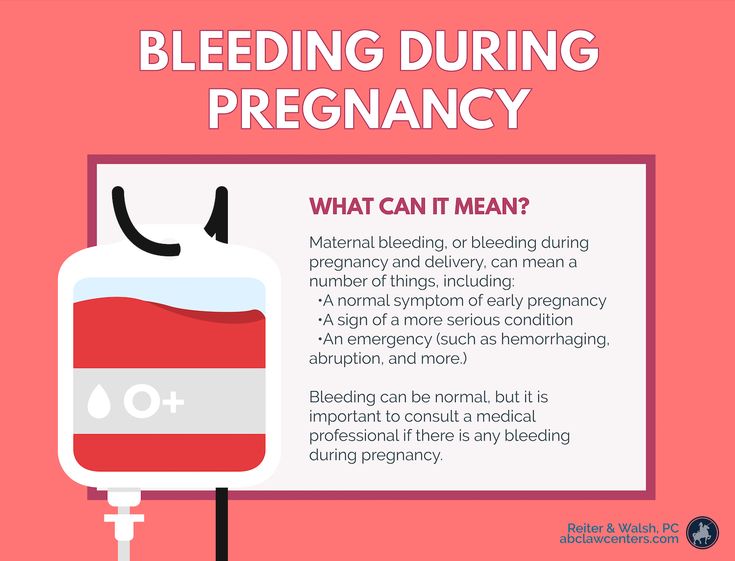 nine0003
nine0003
Diagnostics
If blood has gone from the genitals of a pregnant woman, the doctor conducts an external and gynecological examination.
Analyzes and examinations:
- general and biochemical blood test;
- general urine analysis;
- tests for hCG, other hormones;
- Ultrasound of the pelvic organs; nine0155 CTG is performed to assess the vital activity of the fetus.
Treatment
Methods of treatment depend on the results of the examination.
Bloody discharge in the first trimester - causes and therapeutic measures:
| Causes | Treatment | nine0031
| Miscarriage | Cleansing the uterus. |
| Ectopic pregnancy | Diagnostic laparoscopy, removal of residual fetal tissues, antibiotic therapy. |
| Risk of miscarriage nine0003 | Hospitalization, bed rest, prescribing drugs to maintain pregnancy, sedatives and tocolytics to reduce uterine tone. |
| bubble skid | Curettage of the uterine cavity. |
| Cervical cancer nine0003 | Operational intervention. |
| Polyp injury, cervical erosion | Expectant management, if the condition does not worsen, removal and cauterization is carried out after childbirth. |
| progesterone deficiency | nine0023 |
| Damage to the uterus | Complete bed rest. |
| Infectious pathologies | Depending on the type of pathogen - antibiotics, antiviral or antifungal drugs. nine0003 |
Complications and consequences
It is impossible to ignore bloody impurities in vaginal discharge during pregnancy.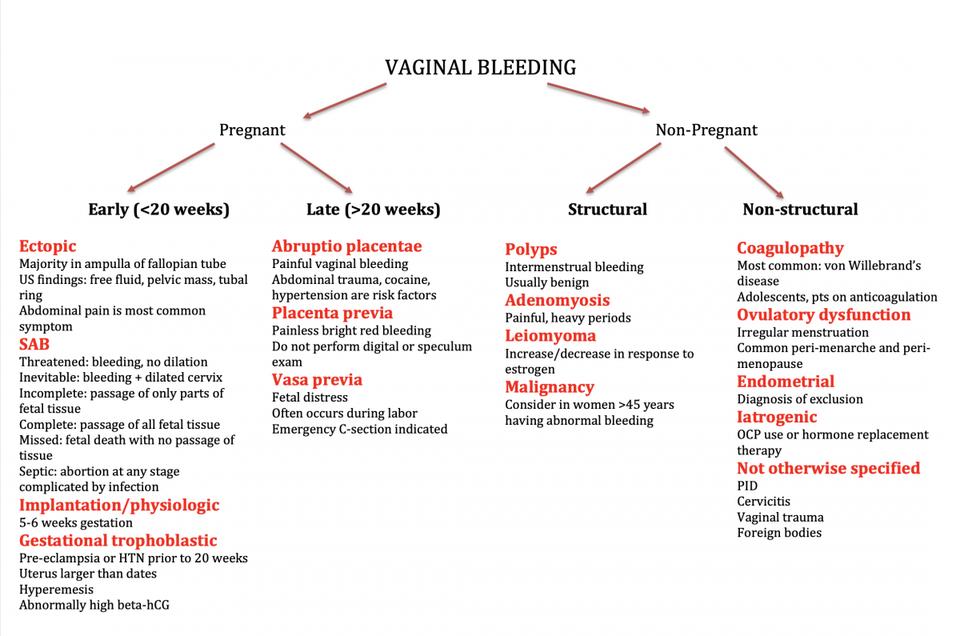 Without proper and timely assistance, the following complications may occur:
Without proper and timely assistance, the following complications may occur:
- miscarriage;
- intrauterine fetal death;
- the development of an infectious process, sepsis due to the remainder of dead tissues in the uterine cavity;
- profuse blood loss can lead to death. nine0156
Important! Urgent medical attention is needed in case of heavy bleeding, discharge of bright scarlet blood, presence of blood clots in the discharge. In life-threatening and fetal conditions, severe pain in the abdomen, lower back, convulsions, profuse cold sweat, and loss of consciousness are disturbing.
Methods of prevention
If there is blood in the first trimester, it is important to remain calm. Stress and anxiety will only exacerbate the situation. But any health problem is easier to prevent than to treat. nine0003
How to avoid bleeding during childbearing - recommendations from a gynecologist:
- eat right and balanced, give up junk and junk food, eat more fresh vegetables and fruits;
- observe the drinking regime;
- in the absence of contraindications, moderate physical activity is indicated - yoga, swimming, special gymnastics for pregnant women;
- more time to walk in the fresh air; nine0156
- avoid stress, overwork, observe the daily routine, get enough sleep;
- give up bad habits, do not be in smoky rooms;
- timely visit a gynecologist;
- according to the doctor's prescription, take vitamin complexes for pregnant women;
- do not self-medicate.
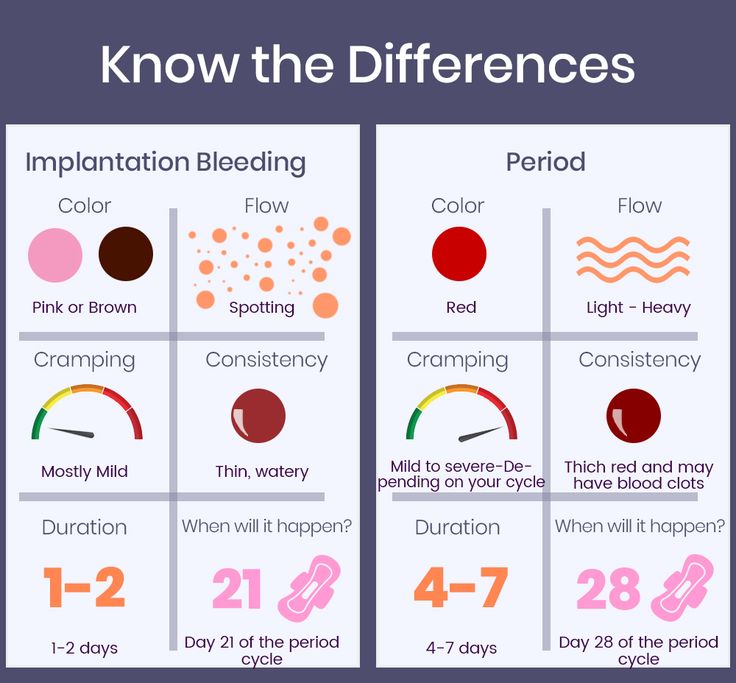
The prognosis for bleeding during gestation depends on the causes and timely visit to the doctor. Properly provided medical care can save the life of the fetus and the woman. nine0003
FAQ
Why is there blood from the genital tract during gestation?
+
The causes of bleeding in early pregnancy are different. Most often, spotting appears when the fetal egg is fixed, progesterone deficiency, with erosion of the cervix and polyps. Dangerous causes - ectopic, molar, miscarriage, miscarriage.
What to do if there is bleeding during pregnancy? nine0003
+
Much depends on the amount of blood released, general well-being. If the bleeding is not strong, not for long, the general condition is normal, it is enough to lie down and rest. Write down the date of the attack, inform the doctor at the next visit. But if even slight spotting during early pregnancy lasts more than 72 hours, is accompanied by cramping or acute pain, fever, you should immediately visit a gynecologist or call an ambulance. nine0003
nine0003
How can you recognize a miscarriage?
+
With the threat of interruption, spotting is scanty, pain in the lower abdomen is absent or may be dull, aching. The condition is considered reversible, with timely treatment, pregnancy can be saved. If a miscarriage has begun, bleeding intensifies, cramping pain appears. The general condition is satisfactory. Urgent hospitalization is required, the probability of maintaining pregnancy is decided on an individual basis. nine0003
Expert opinion:
Bleeding during pregnancy is a dangerous symptom. Sometimes spotting can be caused by physiological reasons. But often such a symptom appears in life-threatening conditions for the woman and the fetus.
We publish only verified information
Article author nine0003
Menshikova Maria Viktorovna obstetrician-gynecologist
Experience 38 years
Consultations 1816
Articles 46
Specialist with extensive practical experience. He has a certificate of a mammologist, a certificate of professional certification. Participates in foreign business trips and individual training programs (Los Angeles). nine0003
He has a certificate of a mammologist, a certificate of professional certification. Participates in foreign business trips and individual training programs (Los Angeles). nine0003
- 1982 - 1986 NPO MONIIAG - obstetrician-gynecologist
- 1987 - 1989 VNITs OZMIR - obstetrician-gynecologist
- 1989 - 1992 departmental polyclinic st. Moscow - Kurskaya - obstetrician-gynecologist
- 1992 - 2001 NPO MONIIAG - obstetrician-gynecologist
- 2007 - 2008 NP KMIKM - doctor administrator
- 2009 - 2013 Pereslavl Central District Hospital, women's consultation - obstetrician-gynecologist nine0155 2020 to present Teledoctor24 LLC - doctor - consultant (gynecologist)
Bloody discharge during pregnancy ᐈ Blood during early pregnancy
Seeing bloody discharge, a pregnant woman is always frightened. They are considered a symptom of miscarriage and other equally serious pathologies. At the same time, in some cases, the appearance of a small amount of blood is considered the norm and does not pose a threat to the life and health of the fetus or the expectant mother.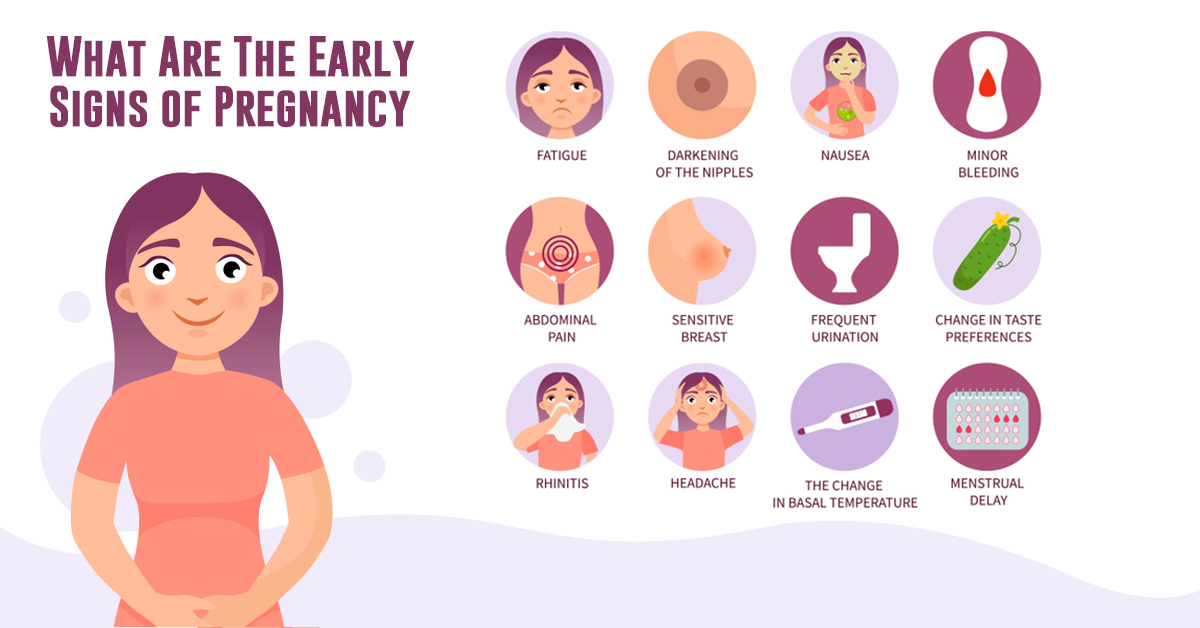
In early pregnancy, bloody discharge occurs in 25% of women. In most cases, they are associated with the implantation of the fetal egg to the wall of the uterus. Also, scanty spotting may appear on the dates of the expected menstruation. If they end quickly, are not accompanied by pain, and the woman has not had miscarriages or pregnancy complications before, most likely she has nothing to worry about. However, it is necessary to consult an obstetrician-gynecologist and undergo an examination. nine0003
Why bloody discharge can appear and when it is dangerous, said Elena Petrovna Domnich, obstetrician-gynecologist of the highest category, gynecologist-endocrinologist, ultrasound specialist of the ADONIS medical center.
Elena Nikolaevna, tell me, can a woman have periods during pregnancy?
- Sometimes during pregnancy, a woman may experience spotting, but this should not be interpreted as menstruation. Menstruation occurs at the end of the menstrual cycle, during which the endometrium changes, first proliferative, then secretory.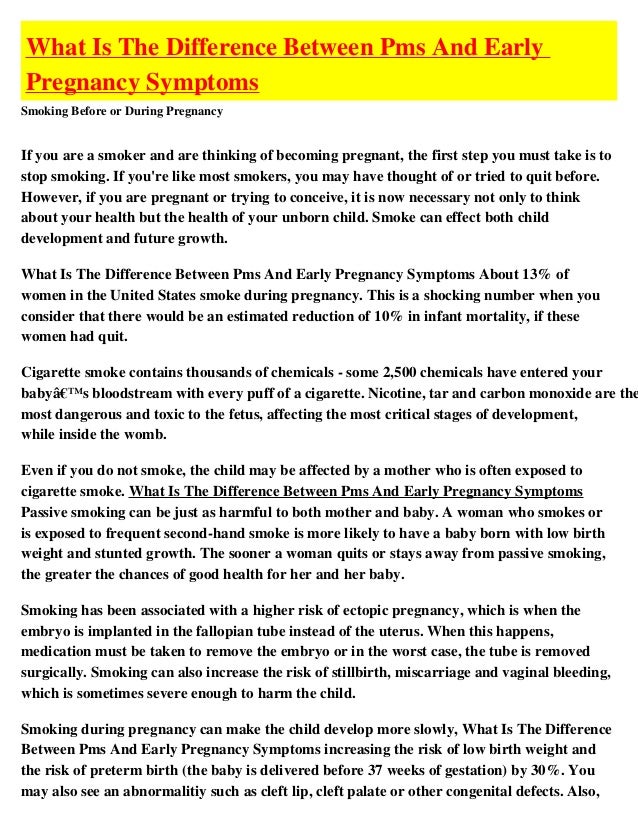 During the cycle, the endometrium prepares for pregnancy, and if it does not occur, then menstruation begins. nine0003
During the cycle, the endometrium prepares for pregnancy, and if it does not occur, then menstruation begins. nine0003
In the event of pregnancy, menstruation is not possible, although bleeding may occur at the expected time. Because of this, some women do not immediately know that they are pregnant. However, when the obstetrician-gynecologist at the reception asks them about the nature of the discharge, it always turns out that they are different from menstrual. As a rule, they are more scarce, pass faster and are not accompanied by other symptoms. Sometimes a woman says that her period was very recent, but at the time of examination and examination, we find that she is already 8 or 12 weeks pregnant. nine0003
How often does this happen? Is spotting during pregnancy an exception or a fairly common occurrence?
- Bloody discharge is not common in pregnant women, but still it cannot be said that these are exceptional cases.
Tell me, if a woman is planning to conceive a child, and during the expected period she has unusual discharge, should she take a pregnancy test? nine0412
- Yes, but it's better to visit an obstetrician-gynecologist. There are cases when a woman is pregnant, but the test strip shows a negative result. To accurately determine whether there is a pregnancy, allows a blood test for the level of hCG.
There are cases when a woman is pregnant, but the test strip shows a negative result. To accurately determine whether there is a pregnancy, allows a blood test for the level of hCG.
So bleeding during pregnancy is not menstruation, but bleeding? Why can it appear and why is it dangerous?
- Yes, that's right. This is bleeding, not menstruation. It can be a symptom of a miscarriage, ectopic pregnancy, or other pathology. For diagnosis, you must consult a doctor. nine0003
Tell me more, if a woman has a discharge and thinks she is menstruating, but a previous pregnancy test came back positive, could it be wrong?
- A pregnancy test is sometimes positive even if it is not. This happens if a woman has formed luteal cysts or developed a thyroid disease.
Bloody discharge during pregnancy requires contacting the antenatal clinic or the medical center where the woman was registered for pregnancy management.

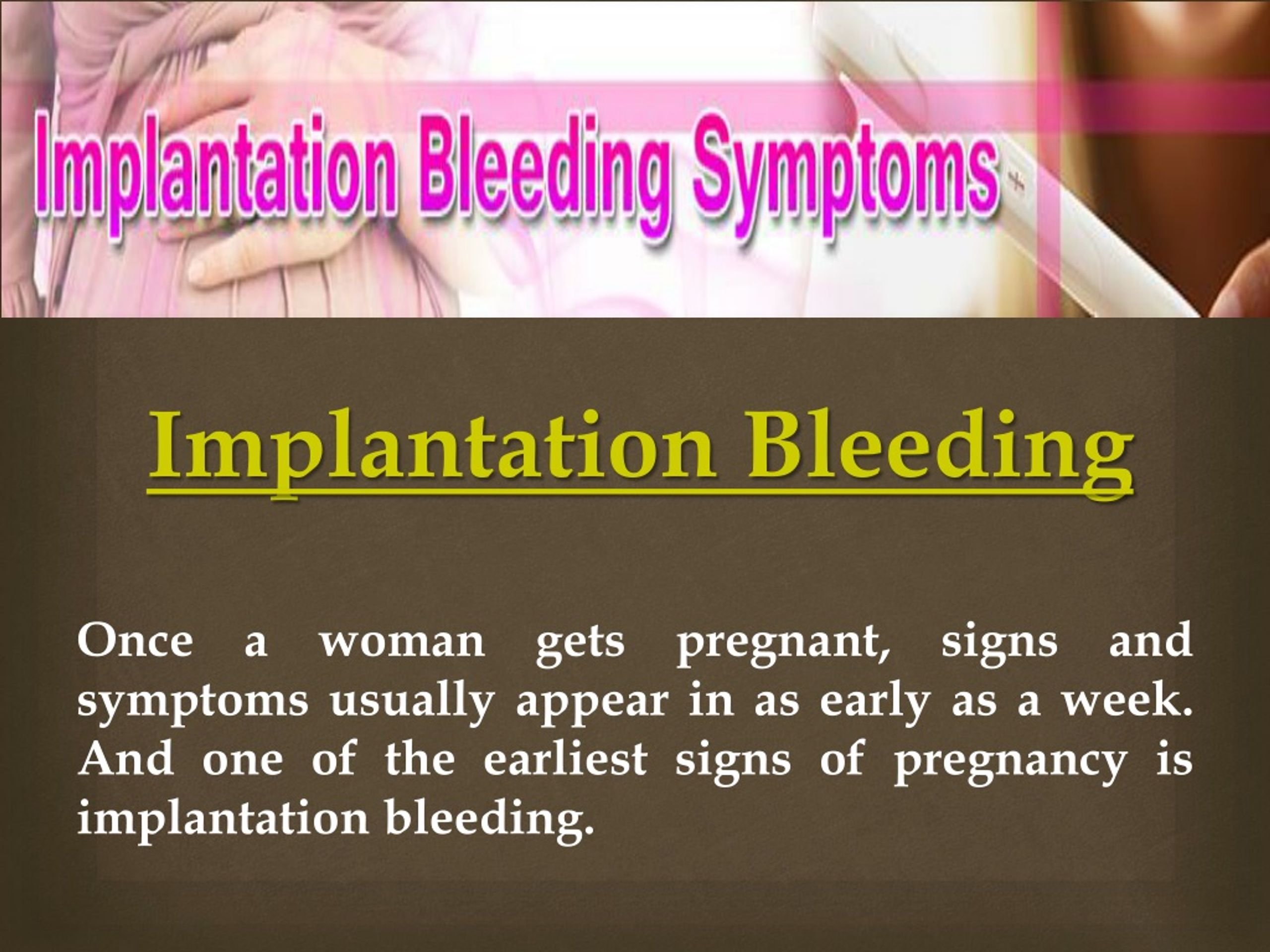
 Hemorrhage around the placenta most often resolves on its own. But it increases the risk of preterm birth and other complications. nine0003
Hemorrhage around the placenta most often resolves on its own. But it increases the risk of preterm birth and other complications. nine0003 